#Muqiao
Explore tagged Tumblr posts
Text
I've come to the realization that if I don't pull myself together and become the driving force behind a Saved the Public Enemy by Mistake fandom on here (or anywhere, really) - no one will! and so here I am. and here is why you should read it!
Quick info:
Title: 不小心救了江湖公敌 / Saved the Public Enemy by Mistake or Accidentally Saved the Public Enemy
Author: 六木乔 / Liù Mùqiáo
What is it? Original manhua, no novel or adaptations
Genre: historical fantasy, xuanhuan/xianxia
Status: Ongoing, 110 episodes/? - currently on temporary hiatus, weekly updates will resume July 22!
It's free to read on the bilibili app!
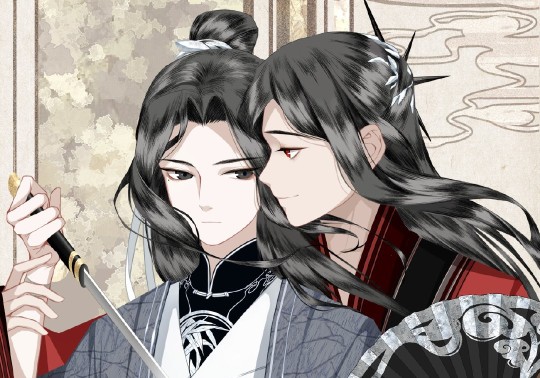
What's it about?
Here's the summary from bilibili: The peaceful life of Lu Jiu is brought to an end when a teenage cultivator turns up before his medical hall, badly injured. The young physician saves the boy, not knowing that he's Liu Jianghe, a notorious man whom many want dead. Is it too late to kill him now?
What's in it for you?
An absolutely gorgeous art style
Complex characters, intriguing plot, lots of detail to pay attention to! everything is important!
MC is literally the embodiment of the "I'm a healer, but..." meme
Fun cultivation magic
Questionable ethics
The relationship between the two MCs is just 🤌🤌🤌
Lesbians !! (side characters but they get plenty of their own screentime, I love them)

There's not a lot of merch, especially not here in the US, but the second physical volume (in Chinese) is coming out in August!
More readers = more likely to someday get an official translation and licensing by an Eng publishing company
I know lots of readers, even those who keep up with updates, get confused on characters and locations and plot events, so if there's any interest in a character directory or other reference-style posts, I would have fun making that! I might do it even if no one asks, bc I love this manhua and I want to talk about it more.
If there are fans on here, please interact in some way! I need more Saved the Public Enemy content and enjoyment on my dash and in my life.
#saved the public enemy by mistake#accidentally saved the public enemy#不小心救了江湖公敌#六木乔·#liu muqiao#manhua#manhua recommendation#manhua rec#bilibili#historical fantasy#xianxia#xuanhuan#liu jianghe#lu jiu#lu qingyun
120 notes
·
View notes
Text
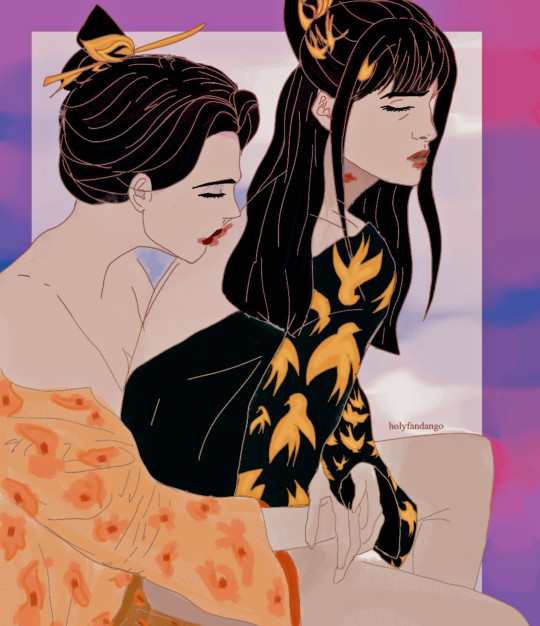
#i accidentally saved the jianghu's enemy#不小心救了江湖公敌#liu muqiao#wlw#wlw post#art#xie qingshuang#qu jianglin#manhua#fan art#digital art#saved the public enemy by mistake#lu jiu#lu qingyun#liu jianghe
11 notes
·
View notes
Text

From Saved the Public Enemy By Mistake on Bilibili.
7 notes
·
View notes
Text
youtube
Wang Xiangzhai: The Poet-Kickmaster Who Redefined Martial Arts
In the vibrant tapestry of Chinese martial arts, few names resonate with the profound impact and revolutionary spirit of Wang Xiangzhai. Born in 1885 in the Shenxian district of Hebei province, Wang was not just a martial artist but a poet whose lyrical genius and scientific mind coalesced to reshape the very essence of combat. His journey from a sickly child to one of the greatest martial geniuses of the twentieth century is a story of resilience, intellect, and unwavering dedication.
A Prodigious Apprenticeship
Wang’s foray into martial arts began at the tender age of eight, under the strict tutelage of his Uncle Guo Yunshen, a renowned Xingyiquan master. Despite initial reluctance due to his uncle’s own physical ailments, Wang’s exceptional intelligence and relentless work ethic won him the mantle of a worthy successor. Their bond was forged in the rigorous practice of Zhan Zhuang, or standing meditation—a foundational element that Wang would later elevate to new heights. This early training not only restored Wang’s health but also honed his innate martial prowess, making him a formidable fighter by his teenage years.
Guo Yunshen’s mentorship was both strict and visionary. He emphasized the importance of inner cultivation over mere physical prowess, a philosophy that deeply influenced Wang. As Wang later articulated, the right combination of student, teacher, and art was crucial for genuine progress—a principle that guided his entire career.
Early Triumphs and Trials
Wang’s martial journey was punctuated by significant challenges that tested and ultimately validated his skills. At sixteen, he famously defended himself and his father against a bandit ambush, demonstrating his formidable strength and strategic acumen. Another notable incident involved his encounters with young monks, whom he effortlessly bested, further cementing his reputation as a martial virtuoso.
However, Wang’s path was not without personal struggles. His departure from home at 22, driven by disciplinary conflicts, led him to Beijing where his martial talents were soon recognized by a military captain. This encounter not only secured him a position as a martial arts instructor but also introduced him to a life enriched by both poetry and combat.
The Quest for Knowledge
Wang’s insatiable thirst for martial knowledge took him across China, engaging with masters from various disciplines. His time at the Shaolin Monastery was particularly transformative. There, he forged a deep friendship with Monk Henglin and absorbed invaluable teachings from Abbot Benhong. These experiences broadened his understanding of Xingyiquan and laid the groundwork for his future innovations.
One of Wang’s most pivotal encounters was with Xie Tiefu, a reclusive Xinyiquan grandmaster. Despite being defeated in multiple bouts, Wang’s perseverance and humility earned him Xie’s mentorship, resulting in significant personal growth and mastery. These interactions across northern and southern China not only enhanced his technical prowess but also deepened his philosophical insights into martial arts.
Discovering the Dunhuang Legacy
Wang’s exploration led him to the ancient Dunhuang caves, where he uncovered Buddhist texts and art that predated many martial traditions. These discoveries provided a historical and spiritual foundation that Wang meticulously integrated into his own practice. The revelations from Dunhuang reinforced his belief in the unity of mind and body, a cornerstone of his philosophy.
His collaboration with Huang Muqiao, who reconstructed the ancient “Health Dance,” was another milestone. This partnership not only enriched Wang’s techniques but also solidified his conviction in the importance of mental cultivation over physical form.
Revolutionizing Martial Arts: The Birth of Yiquan
Wang Xiangzhai’s most enduring legacy is undoubtedly the creation of Yiquan, a system that stripped away the ornate forms of traditional martial arts to focus purely on the cultivation of the mind. By eliminating the emphasis on movement patterns, Yiquan encourages practitioners to harness their inner strength and respond naturally to any situation. This radical approach challenged the status quo, sparking both admiration and controversy within the martial arts community.
Wang’s critique of traditional martial arts was scathing yet insightful. He argued that the obsession with forms hindered true martial development and that secrecy and authoritarianism within martial lineages stifled innovation and collaboration. His call for openness and mental discipline was revolutionary, paving the way for a more holistic and accessible martial practice.
Dominating the Dojo: Domestic and International Challenges
In Shanghai, Wang’s reputation soared as he effortlessly defeated countless challengers, including prominent European and Japanese martial artists. His bouts were not merely contests of strength but demonstrations of his superior mastery of Yiquan’s principles. The legendary encounters with fighters like the Hungarian World Featherweight Champion Inge and Japanese martial artist Kenichi Sawai showcased Wang’s unparalleled control and strategic brilliance.
These victories were not just personal triumphs but symbolic of Yiquan’s efficacy and Wang’s visionary approach. His ability to transcend cultural and stylistic barriers underscored the universal applicability of his system, earning him respect and followers both domestically and abroad.
Facing Political Turbulence and Legacy
The political upheavals of mid-20th century China posed significant challenges to Wang’s mission. The rise of the Communist regime forced him to curtail his teachings to focus on the health aspects of Yiquan. Despite these restrictions, Wang remained steadfast in his research, further exploring the connections between Yiquan and traditional Chinese medicine.
Wang’s final years were dedicated to refining his teachings and ensuring that his revolutionary insights would endure. His passing in 1963 marked the end of an era, but his legacy continued to influence martial arts practitioners worldwide.
Enduring Influence and Timeless Wisdom
Wang Xiangzhai’s contributions to martial arts extend beyond his technical innovations. His emphasis on mental cultivation, natural movement, and the integration of ancient wisdom with modern understanding has left an indelible mark on the martial arts landscape. Yiquan remains a testament to his genius, inspiring countless practitioners to seek the harmony of mind and body.
Wang’s life story is a powerful reminder of the transformative potential of dedication and intellect. From his humble beginnings to his rise as a martial arts luminary, Wang Xiangzhai exemplified the true spirit of a warrior-poet, blending physical mastery with philosophical depth. His legacy continues to flourish, nurturing the growth of martial arts as a path of both physical excellence and spiritual enlightenment.
As the martial arts world continues to evolve, the principles established by Wang Xiangzhai remain as relevant as ever. His vision of a martial art that prioritizes the mind’s role in physical practice challenges practitioners to look beyond mere technique, urging them to cultivate inner strength and adaptability. In honoring Wang’s legacy, the martial arts community not only preserves a rich heritage but also embraces a future where the true essence of combat lies in the harmony of mind and body.
Wang Xiangzhai: A Legacy of Strength and Spirit
Wang Xiangzhai’s story is more than a chronicle of martial prowess; it is a narrative of intellectual curiosity, philosophical depth, and unwavering commitment to redefining ancient art. As the world continues to celebrate his contributions, Wang remains a beacon of innovation and inspiration, embodying the timeless principles that elevate martial arts from mere physical discipline to a profound journey of self-discovery and mastery.
#WangXiangzhai#ChineseMartialArts#Yiquan#Xingyiquan#MartialArtsHistory#MartialArtsLegend#MartialArtistProfile#SportsIllustratedStyle#MartialArtsRevolution#YiquanLegacy#ZhanZhuang#MartialArtsPhilosophy#MartialArtsTraining#MartialArtsInnovation#MartialArtsJourney#MartialArtsMastery#MartialArtsInspiration#MartialArtsLegacy#MartialArtsEvolution#MartialArtsCulture#Youtube
0 notes
Note
Do you mind if I ask your top 10 favorite characters (can be male or female) from all of the media that you loved (can be anime/manga, books, movies or tv series)? And why do you love them? Thanks....
Oh!! What a cool question! Thank you :D
I can't be super precise because I love a lot of characters and don't want to hurt their feelings, but here's who comes to mind. In no particular order:
1. Uncle Iroh from Avatar: the Last Airbender. He's the only one I'm actually definitively saying is in a ranking. He's the best one. I love how unfailingly kind and loving he is, and that he demonstrates the beautiful ability to be silly and simply happy despite all the tragedy he's seen. Of course I also love almost every other character in the show, too, but Iroh is Best.
2. Elodin from The Kingkiller Chronicles by Patrick Rothfuss: This man is insane. He is eccentric and opinionated and owns it. He does not give half a fuck what people think of him and cares very, very much about everything else in the world. I want to know everything he knows. He is a trickster god I think.
3. The Cthaeh from The Kingkiller Chronicles by Patrick Rothfuss: Same book series as Elodin but god they both deserve their own mentions since the Cthaeh is on another fuckin level from literally everything. No spoilers, but this thing is the absolute coolest monster concept I have ever seen in any form of media.
4. Makenna from The Goblin Wood by Hilari Bell: This was my favorite book as a kid. Makenna is a badass hedgewitch who befriends a goblin named Cogswhallop. She's violently anti-colonialism and definitely a communist. I literally want to name my kid after her. Write characters like Makenna.
5. Boromir from The Lord of the Rings, mostly referring to the Peter Jackson films because FotR is my favorite movie: I love him. I love him I love him. He was the Best Of Men, and everyone else in the Fellowship was some kind of magic so he was the only one who fell victim to the Ring's sway, but he never stopped being a good man with a noble heart.
6. Hua Cheng from Heaven Official's Blessing by Mo Xiang Tong Xiu: God. I love this author and maintain that she's a genius, and I love so many of her characters, but Hua Cheng gets the first honorable mention because he is The Most Unhinged. All my mxtx favorites are unhinged tbh, but Hua Cheng is on another level. He's made a hobby out of self-sacrifice and makes stalking look tragically romantic. He vacillates between sweet, heart-wrenching adoration for one (1) person and top-tier vicious snarkiness for literally anyone else. He is a force of darkness and a shy baby.
7. Zevran from Dragon Age: My favorite game series. My guy. He tries very, very hard to make you think he doesn't have depth but he's actually just a mastermind at deflection and his heart is behind like eighteen million locked doors. He's cheerful! He's not. He's deeply depressed and his loyalty shows up LOUD when you're not emotionally prepared for it. He's possibly the most devoted companion character in the game.
8. Cole from Dragon Age: He is my son. My treasured baby boy. He loves you. I read Asunder before Inquisition came out so girl I shrieked when he was announced as a featuring character.
9. Nezumi from No. 6 by Atsuko Asano: He's a dick. Pretentious deuteragonist goth boyfriend who quotes classical Western poetry, thinks violence is funny until he sees his Soft, Sweet protagonist engage in it, and commands swarms of bees. His dream is to overthrow the dystopian government.
10. Liu Jianghe from Saved the Public Enemy by Mistake by Liu Muqiao: I'm obsessed with this one lately. Shamelessly promoting this manhua on the Bilibili app. He's my profile icon rn. Unhinged. Not sure what he's capable of. Sweet boy. Keeps making it look like he's the bad guy but all of his decisions are specifically engineered to help the main character fix his life. Everyone is confused and this maniac is cheerful and pretty much lives on the brink of death. Please read it guys it literally only has like 6 fics on AO3 and I want to talk to people about it
#oh look it talks#uncle iroh#atla#elodin#cthaeh#notw#kkc#the goblin wood#boromir#lotr#hua cheng#tgcf#zevran#cole#dragon age#dao#dai#nezumi#no. 6#liu jianghe#stpebm
29 notes
·
View notes
Text

if ur theories don’t get crushed on a weekly basis are u even reading stpebm
[ID: a screenshot from an episode of buzzfeed unsolved, showing shane and ryan sitting at a desk and talking. the subtitles are at the bottom of the image. shane says “i’ve connected the two dots”, to which ryan replies “you didn’t connect shit”, and shane reiterates “i’ve connected them”. the words “stpebm fans” are added over shane, and “liu muqiao releasing a new chapter” over ryan. end ID.]
5 notes
·
View notes
Quote
Statisticians who exaggerated achievement and concealed error were commended and promoted. All statistics had to be approved by the local party committee. In August 1958 the heads of five or six provincial statistical bureaus vented their grievances to chief statistician, Xue Muqiao: “The provincial party committee wants the statistics bureau to report false numbers, and if we don’t, we’ll be disciplined.” They asked Xue what to do. Xue replied, “The Great Leap Forward is an irresistible trend; all you can do is obey the provincial party committee. Some day the central government will ask you for the actual figures, so you must make sure to have all the real numbers ready to present to them at any time.”
Tombstone: The Great Chinese Famine 1958-1962, Yang Jisheng
1 note
·
View note
Text
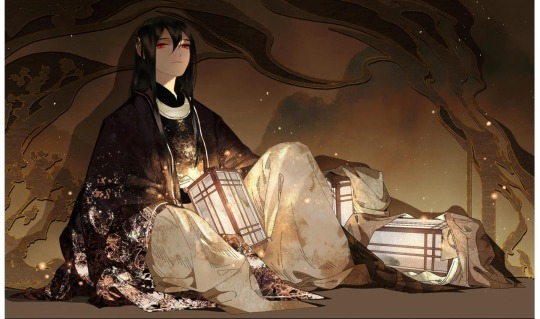
“Saved the Public Enemy By Mistake” by Liu Muqiao. Published by Bilibili. English translation here!
21 notes
·
View notes
Text
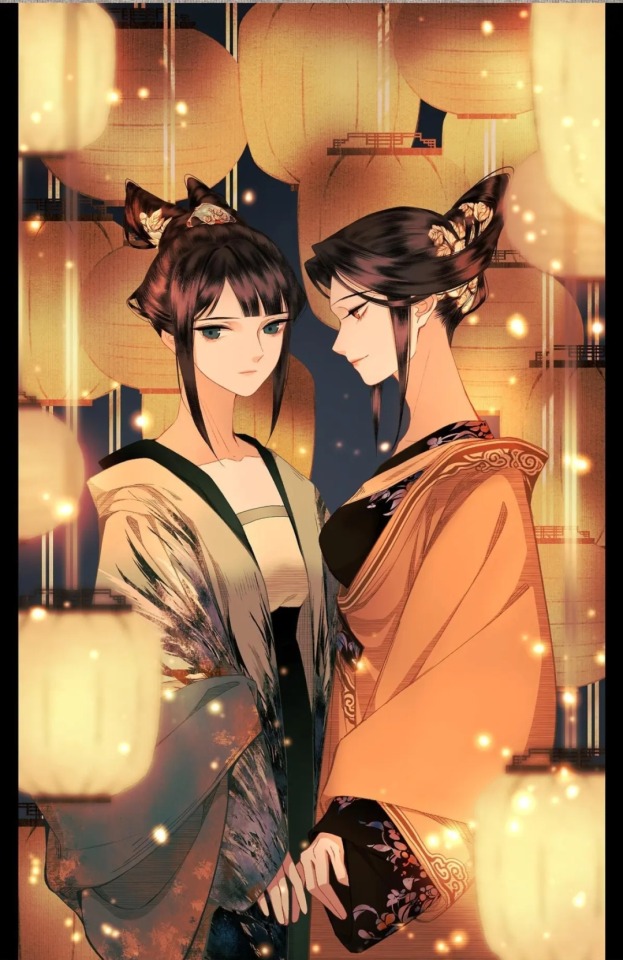
"Saved the Public Enemy By Mistake" by Liu Muqiao. Published by Bilibili. English translation here!
39 notes
·
View notes
Photo


"Saved the Public Enemy By Mistake" by Liu Muqiao. Published by Bilibili. English translation here!
31 notes
·
View notes
Text
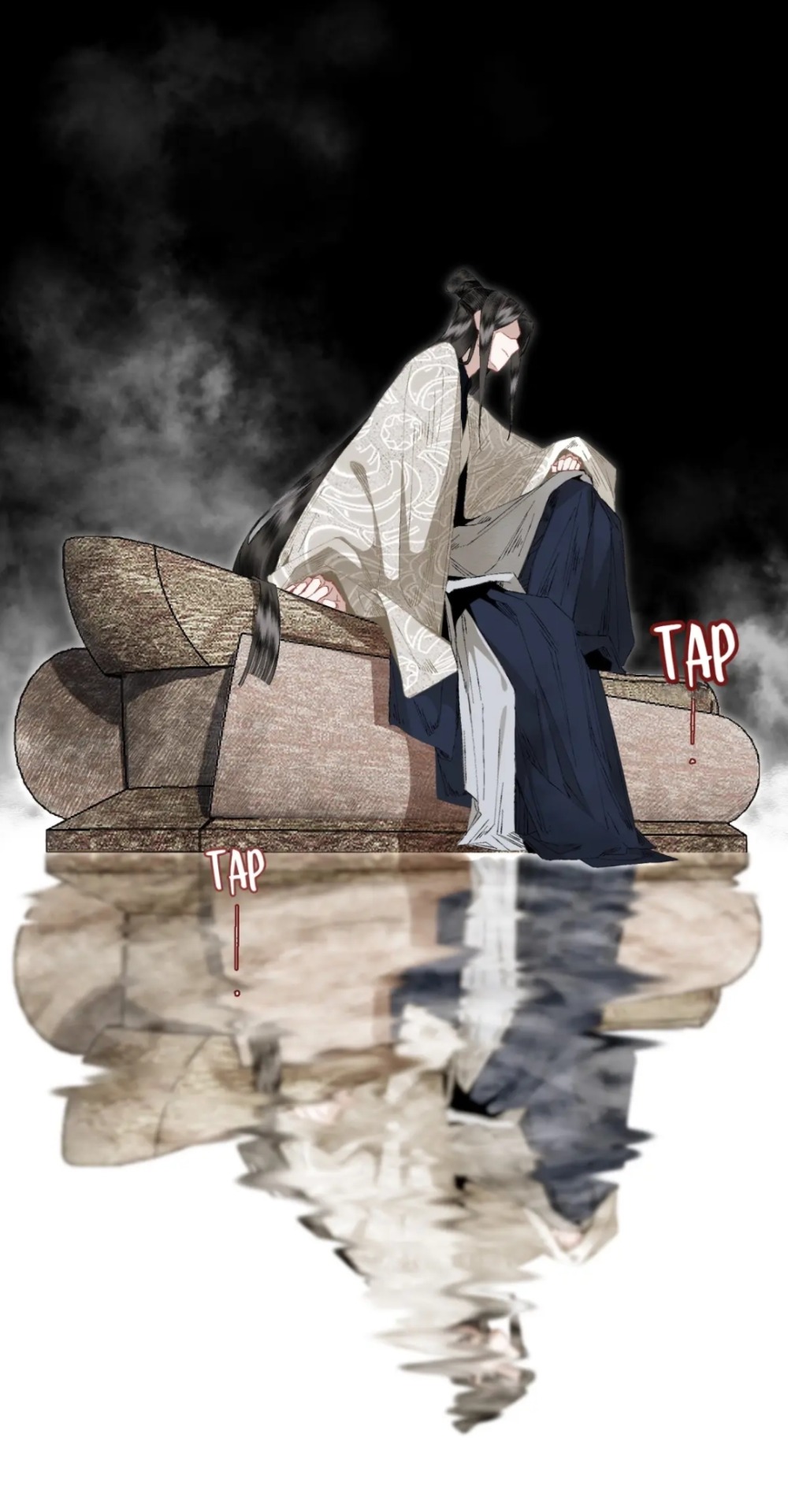
“Saved the Public Enemy By Mistake” by Liu Muqiao. Published by Bilibili. English translation here!
14 notes
·
View notes
Text

"Saved the Public Enemy By Mistake" by Liu Muqiao. Published by Bilibili. English translation here!
15 notes
·
View notes
Text

“Saved the Public Enemy By Mistake” by Liu Muqiao. Published by Bilibili. English translation here!
10 notes
·
View notes
Text

“Saved the Public Enemy By Mistake” by Liu Muqiao. Published by Bilibili. English translation here!
10 notes
·
View notes
Photo


“Saved the Public Enemy By Mistake” by Liu Muqiao. Published by Bilibili. English translation here!
9 notes
·
View notes







